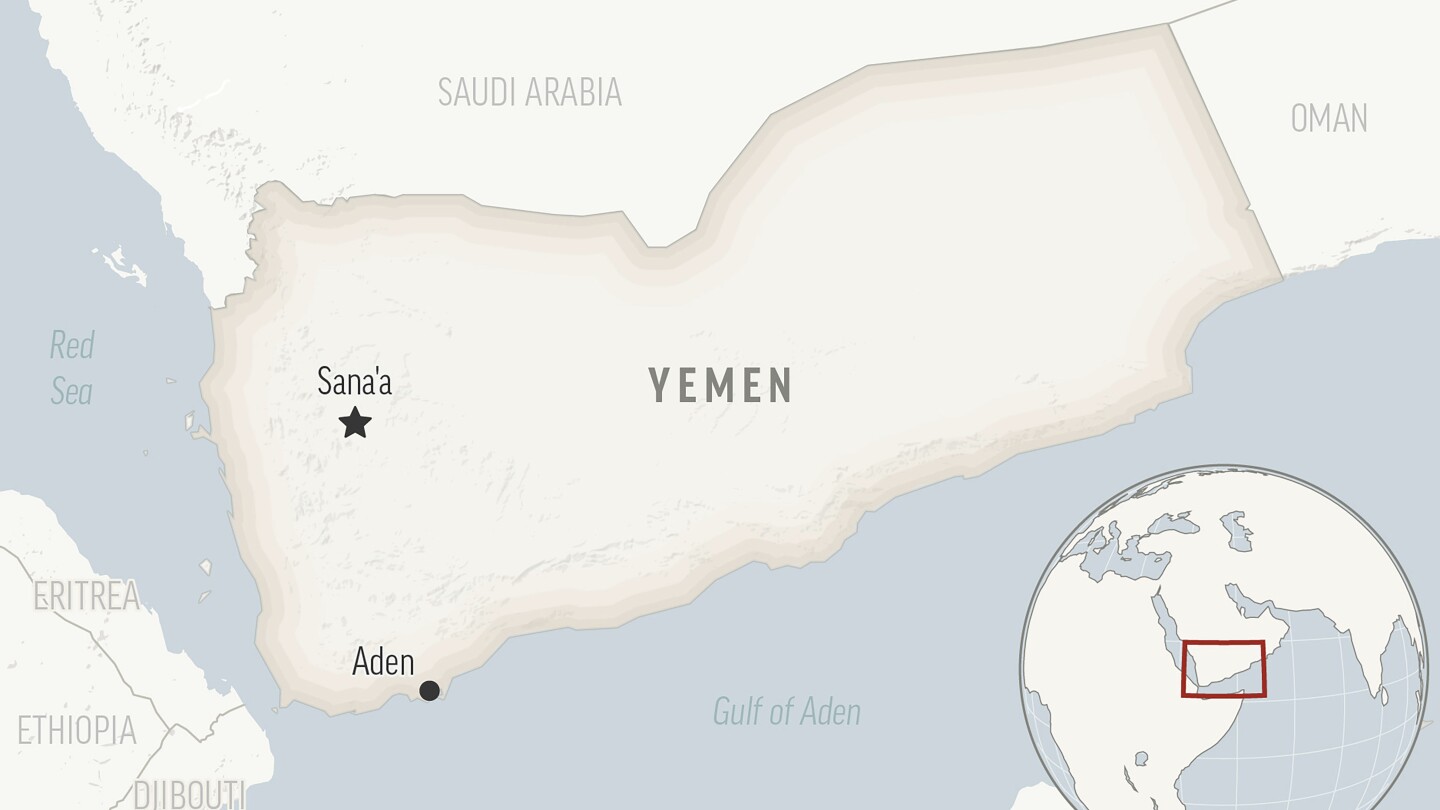DUBAI, United Arab Emirates (AP) — A suspected missile attack by Yemen’s Houthi rebels struck a container ship traveling through the Gulf of Aden, authorities said Sunday, likely the first assault by the group since Israeli airstrikes targeted them.
The Houthis have offered no explanation for the two-week pause in their attacks on shipping through the Red Sea corridor, which have seen similar slowdowns since the assaults began in November over Israel’s war on Hamas in the Gaza Strip.
But the resumption comes after the assassination of Hamas leader Ismail Haniyeh in Iran, the Houthis’ main benefactor, amid renewed concerns over the war breaking out into a regional conflict.
The attack on Saturday happened some 225 kilometers (140 miles) southeast of Aden in a stretch of the Gulf of Aden that has seen numerous Houthi attacks previously.
A security official on the vessel said a missile struck the vessel, but “no fires, water ingress or oil leaks have been observed,” according to a statement from the British military’s United Kingdom Maritime Trade Operations center, a clearinghouse for information on attacks in the Mideast. The UKMTO did not immediately identify the vessel hit.
The private security firm Ambrey also reported the attack. Details reported by the two organizations suggested the vessel targeted was the Liberian-flagged container ship Groton, which had left Fujairah in the United Arab Emirates bound for Jeddah, Saudi Arabia. The Groton’s Greek managers did not immediately respond to a request for comment.
The Houthis did not immediately claim the attack Saturday. However, it can take the rebels hours or even days before they acknowledge an assault.
The rebels have targeted more than 70 vessels by firing missiles and drones in their campaign that have killed four sailors. They have seized one vessel and sunk two in the time since. Other missiles and drones have been either intercepted by a U.S.-led coalition in the Red Sea or splashed down before reaching their targets.
The Houthis maintain that their attacks target ships linked to Israel, the United States or Britain as part of the rebels’ campaign they say seeks to force an end to the Israel-Hamas war in the Gaza Strip. However, many of the ships attacked have little or no connection to the war — including some bound for Iran.
The Houthis also have launched drones and missiles toward Israel, including an attack July 19 that killed one person and wounded 10 others in Tel Aviv. Israel responded the next day with airstrikes on the Houthi-held port city of Hodeida that hit fuel depots and electrical stations, killing and wounding a number of people, the rebels say.
In the time since, there has not been a reported attack on shipping through the Red Sea corridor, which links Asia and the Middle East onto Europe through the Suez Canal. Since November, Houthi attacks have disrupted the $1 trillion flow of goods passing through the region annually while also sparking the most-intense combat the U.S. Navy has seen since World War II.
The killing of Haniyeh in Tehran has sparked concerns of a new escalation in the Israel-Hamas war. Already, the U.S. military says it will move a fighter jet squadron to the Middle East and keep an aircraft carrier in the region.
The USS Abraham Lincoln aircraft carrier strike group will enter the Middle East to replace the USS Theodore Roosevelt carrier strike group, which is in the Gulf of Oman. Other ships are in the Mediterranean Sea with a Marine detachment if regional evacuations become necessary.
Meanwhile Saturday, the U.S. military’s Central Command said its forces destroyed a Houthi missile and launcher in Yemen.
Hamas’ Oct. 7 attack on Israel, which killed 1,200 people and saw 250 others taken hostage, sparked the war. In the time since, Israel has killed at least 39,550 Palestinians in the Gaza Strip and 590 in the Israeli-occupied West Bank, Palestinian health officials say.

